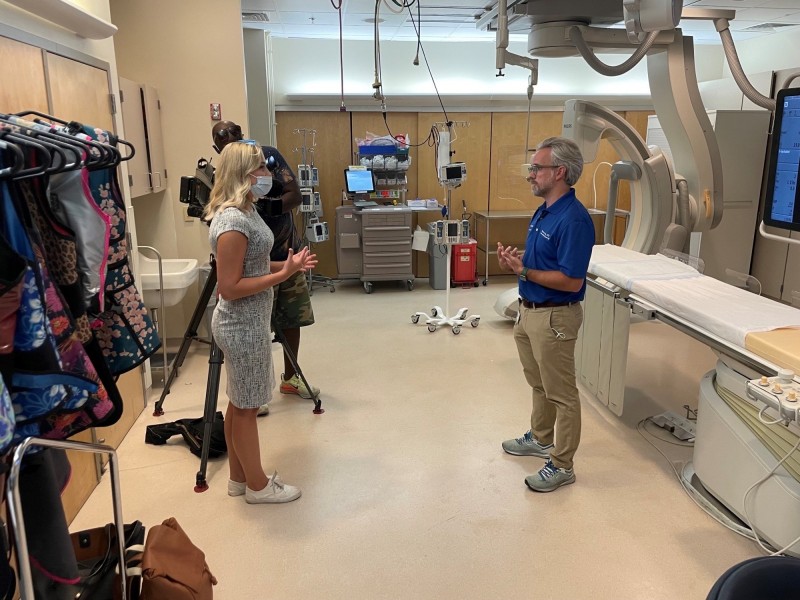Dublin Man Shares Warning About Heart Health
Dan Zuber, who is now 49-years-old, was just 47 when he had a heart attack. He told ABC6 reporter, Kate Siefert, he started noticing something in his body didn't feel right while he was working out at the gym.
"I pulled into an emergency room and said I wasn’t feeling well and had a pain in my arm," the Dublin resident told Siefert. “They took me right back, hooked me up to an EKG and said you’re having a heart attack.”
About 45 minutes into his gym routine, he was lifting weights when someone next to him told him he didn't look very well. He stopped his workout, went to the lobby and sat down. Zuber was experiencing stomach pain and a sharp pain down his arm, but shortly after the pain started, Zuber said it went away and he drove himself home to get ready for work. As he was driving to work, he felt a pain go up his neck and knew something wasn't right. That's when he made the decision to drive himself to OhioHealth Emergency Care in Hilliard.
When he arrived, his explained his symptoms and was immediately taken back for an examination.
OhioHealth interventional cardiologist Kevin Stiver, MD, told ABC6, unfortunately heart attacks in young patients do happen.

"The thing that catches people’s eyes are the healthy people who have heart attacks," Dr. Stiver said. “But I’m glad to tell you that, fortunately, they are still in the minority when you think about the overall spectrum of people who develop heart disease, but it does happen. Going to your doctor on a regular basis can help define what your risk for developing a heart attack could be.”
Stiver said part of defining your risk of a heart attack is knowing your family history, but for Zuber, that wasn't as easy.
"I was adopted as a newborn," Zuber said. "I’ve never met or sought out my birth parents and had no idea that I could have had a heart attack in my early 40s. I still don’t know if anyone in my family has."
Since his heart attack, Zuber told ABC6 he's felt healthy, but still needs to continue monitoring his heart health and paying annual visits to Dr. Stiver.
"The longer you wait to seek medical care if you are having a heart attack, the worse damage is done to the heart muscle," Stiver told ABC6 . “It's not always that classical representation of an elephant sitting on your chest. It can be unexplained nausea, or unexplained sweatiness. Your heart is a muscle, so any time you do something and the pain and symptoms get worse, that’s always raising our antenna.”



